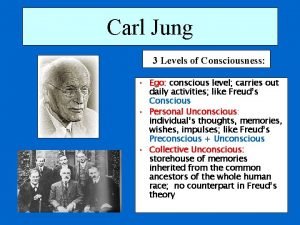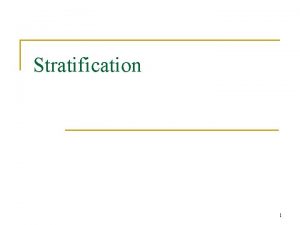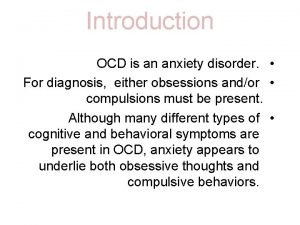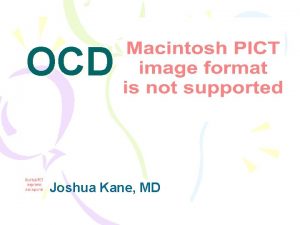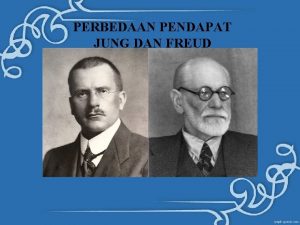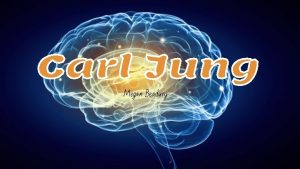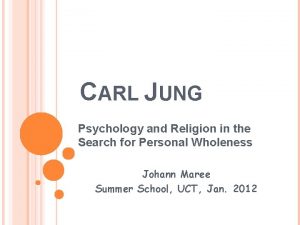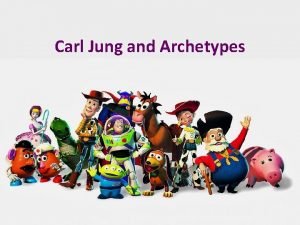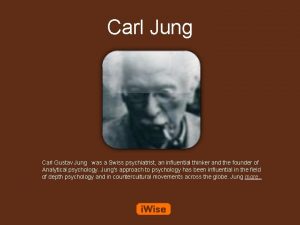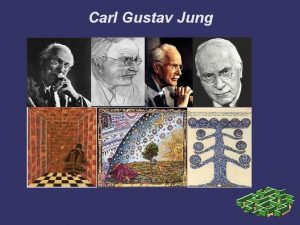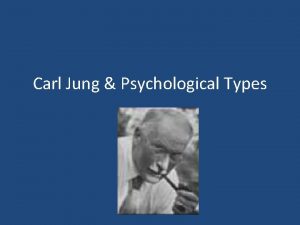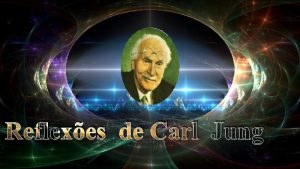Carl Jung 3 Levels of Consciousness Ego conscious







- Slides: 7

Carl Jung 3 Levels of Consciousness: • Ego: conscious level; carries out daily activities; like Freud’s Conscious • Personal Unconscious: individual’s thoughts, memories, wishes, impulses; like Freud’s Preconscious + Unconscious • Collective Unconscious: storehouse of memories inherited from the common ancestors of the whole human race; no counterpart in Freud’s theory

The Collective Unconscious It contains archetypes, emotionally charged images and thought forms that have universal meaning. Archetypes cause us to respond in certain ways to common human experiences. Key archetype: Mandala (“magic circle”), an image symbolizing the unity of life.

Jung Speaks on the Mandala… I had to abandon the idea of the superordinate position of the ego. . I saw that everything, all paths I had been following, all steps I had taken, were leading back to a single point -- namely, to the mid-point. It became increasingly plain to me that the mandala is the centre. It is the exponent of all paths. It is the path to the centre, to individuation. . I knew that in finding the mandala as an expression of the self I had attained what was for me the ultimate. C. G. Jung. Memories, Dreams, Reflections.

Additional Archetypes • Persona: your public personality, aspects of yourself that you reveal to others. • Shadow: prehistoric fear of wild animals, represents animal side of human nature. • Anima: feminine archetype in men. • Animus: masculine archetype in women. • Others: God, Hero, Nurturing Mother, Wise Old Man, Wicked Witch, Devil, Powerful Father.

Basic Personality Orientations • Introversion: focused inward; the person is cautious, shy, timid, reflective. • Extroversion: focused outward; the person is outgoing, sociable, assertive, energetic.

Mental Functions • Thinking: naming and interpreting experience. • Feeling: evaluating an experience for its emotional worth to us. • Sensing: experiencing the world through the senses without interpreting or evaluating it. • Intuiting: relating directly to the world without physical sensation, reasoning, or interpretation.

The Concept of Self The self is the fully developed personality. It is attained by balancing and integrating all parts of the personality. Jung was the forerunner of the humanistic movement, with its emphasis on selfactualization.
